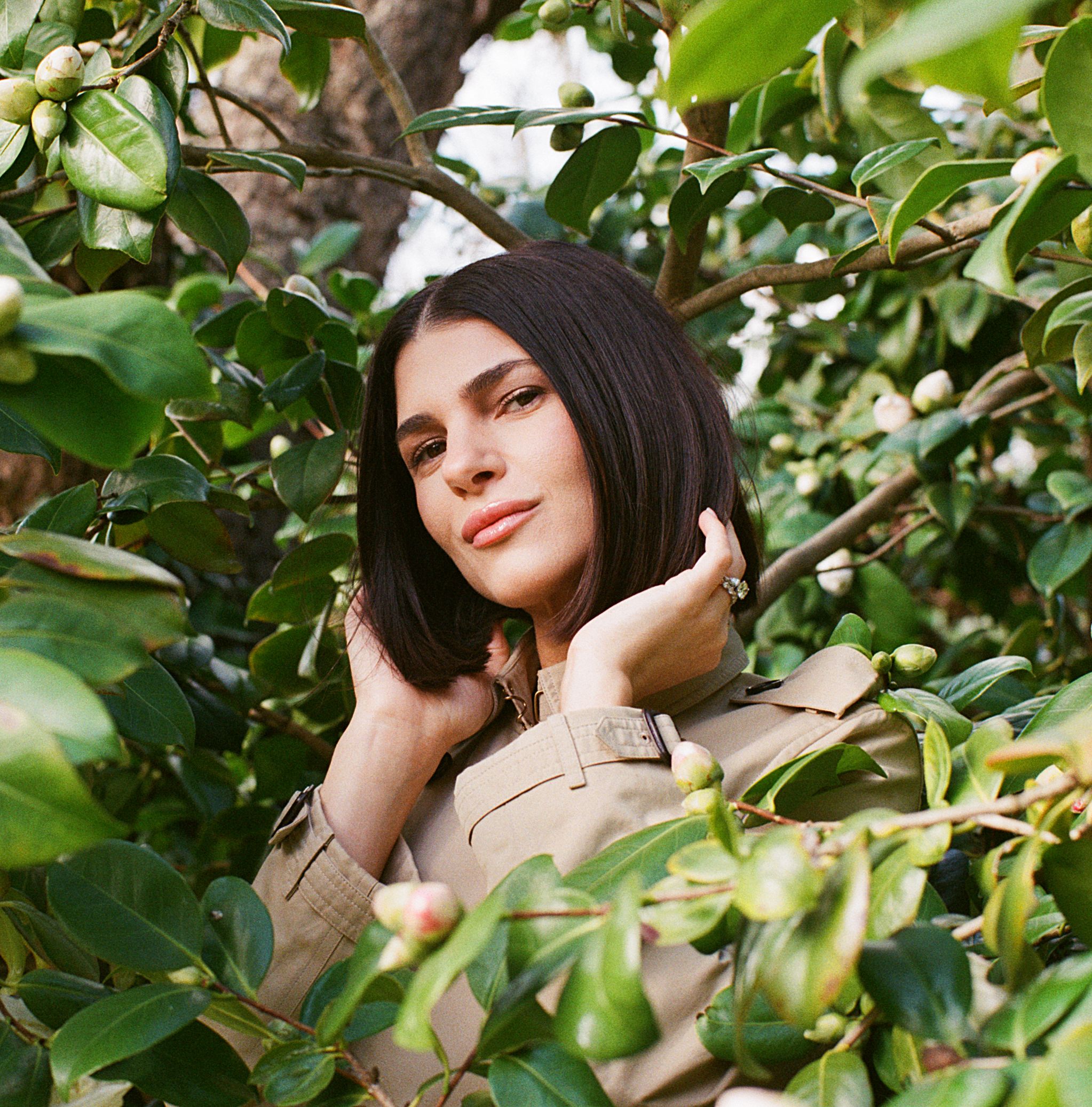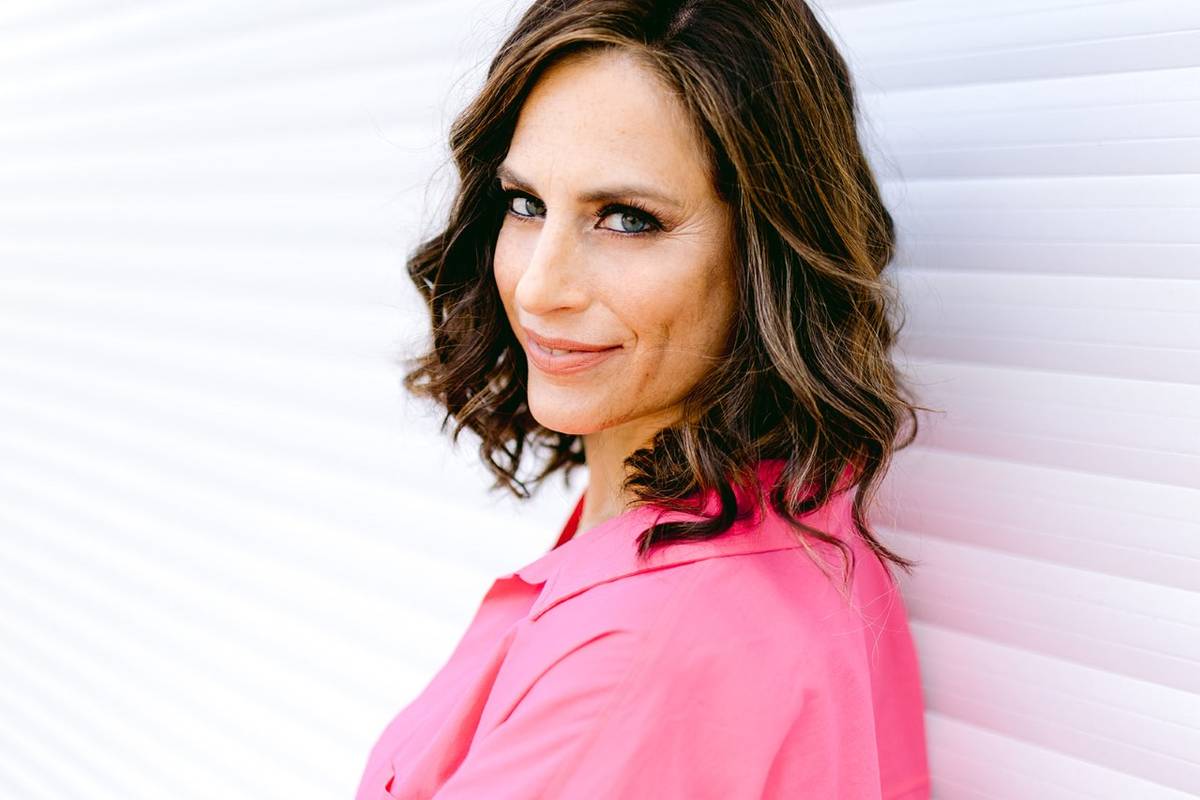The Funny Frum Women of Social Media
Orthodox women are making TikTok and Instagram viewers laugh



Two years ago, during the COVID-19 lockdowns, Chaya Raichik was at home in London, taking care of her two children under 2, all day every day. Though she loved being a mother, at the same time, she wanted something she could call her own.
“I was losing my mind,” she said, “and I needed an outlet.”
Raichik (who is not the Chaya Raichik who runs Libs of TikTok) posted a reel on her Instagram, @chayaoflondon, and opened up a TikTok account. She started creating videos where she poked fun at her Jewish community, pointed out the ridiculousness of the Kardashians, and parodied herself.
In one Instagram reel she created, younger Chaya is talking to older Chaya about whether or not she accomplished her goals.
“Did we get married?” younger Chaya asks.
“Twice,” older Chaya says.
“Do we graduate college?” younger Chaya asks.
“No,” older Chaya responds.
“High school?” younger Chaya asks.
“No.”
Then, younger Chaya, taken aback, asks, “So what do we do???”
Older Chaya says, “TikTok.”
Raichik, who now has over 36,000 followers on Instagram, hopes her videos put a realistic spin on the lives of Jewish women like her. Originally from a Hasidic home in Los Angeles, she is proudly observant, although she doesn’t identify as being part of any movement. She is one of a growing number of frum, or traditionally observant, women who have taken to Instagram and TikTok to provide relatable, entertaining content to their fellow frum women—while sticking to their values. It’s a high-wire act, but one they believe is important.
“Social media is so saturated with perfectly curated content from beautiful people unintentionally (I hope) making you feel inadequate,” Raichik said. “I wanted to bring humor to the rest of us average people living less exciting lives.”
I am one of her people—an Orthodox woman, and not a famous influencer. I went through an Orthodox conversion, during which my husband, born Jewish, became Orthodox, too. He used to be a full-time standup comedian, and I’d sit through other acts to see him perform. And the more religious we both became, the more sensitive we became to the profanity and the religion-bashing we often heard onstage.
For us, watching these funny frum women is not the same as being in a comedy club watching acts perform live, but it provides laughs throughout the day—something I need as a mother of two young children. Seeing women like myself stressing out about the same things I do, and being able to poke fun at our lifestyle, helps me.
Still, even though these women just want to make people laugh, it does get serious and judgmental at times. For Raichik, followers often don’t understand her precise observance level. Viewers send in questions for her Ask Me Anything posts. A recent one was about her level of religiosity and her marriage.
“So do you keep SHABBOS?” the person asked. “And wear a wig? How does Marcus feel about it? Is he religious, too?”
True to her style, Raichik responded in a less than serious manner: “Yes, we’re Seventh Day Adventist,” she said, “so we keep Sabbath on Saturdays like the Jews. Also who’s Marcus?”
In another post, Raichik put up a picture of her mother’s meat pot, which happened to be blue. Many people anxiously commented, asking why the meat pot was blue (traditionally, people make their blue pots dairy and their red ones meat). Did Raichik mix them up? Did she need saving?
For Julie Levi, who goes by @officiallyjulie_comedy on Instagram and has nearly 8,000 followers, being an Orthodox Jewish woman makes her think twice about how much she puts herself out there. She doesn’t swear, she avoids bringing up politics, and she’s mindful about the fact that men are following her, too.
“As long as [the men are] respectful, I don’t mind,” Levi said. “As a ba’alat teshuva who took a while to find her comfort zone as a religious woman, I find creating comic Jewish content the perfect medium as someone who has one foot in the nonreligious world and the other in the Orthodox world.”

Levi got her start with comedy when she was a trained medical clown. She’d go into hospitals, battered-women’s shelters, and nursing homes to try to make people laugh.
“I saw the power of humor in coping with emotional and physical pain, and as someone who battled clinical depression for years, experienced its healing powers firsthand,” she said. “To know that I have the ability to help people laugh is the most beautiful gift that God has given me, and I feel incredibly blessed to be able to share this gift with the world.”
From time to time, Levi does Instagram Live chats with other frum funny women. She credits Zehavit Rosenbloom, on Instagram as @zeya_comedy, for helping her get started on Instagram.
“[She inspired] me to create my own original content and cheered me on,” Levi said.
Rosenbloom is one of the most well-known in the group, with 25,000 followers, some of whom are fellow content creators on Instagram. Like Levi, she didn’t come from a religious upbringing, and she grew up watching a lot of television. Once she became observant, she decided she wanted to make an entertaining kids’ show featuring Jewish themes. When she realized how much it would cost to produce it, she abandoned the idea.
Then, seven years ago, she posted a funny video on Facebook and received positive feedback on it. “I later made another video, and another, and another,” she said. “[There were videos about] my baal teshuva path, cultural differences, immigration, and Israeli culture, all in a funny relatable way. People loved it, and I was slowly realizing how much I love creating, editing, and mostly putting smiles on people’s faces.”
Rosenbloom is known for developing recurring characters on Instagram, dressing up in costumes and wearing wigs for her sketches. She makes videos pretending she’s a high-maintenance Israeli woman with giant fake lips and a Torah teacher named Rebbetzin Gshmak, who has big teeth and a thick New York accent.
In her posts, Rosenbloom strives to be real about what the Orthodox lifestyle is like without putting anyone down. “Although I’m making fun of things in our communities, the purpose is not to not bash it,” she said. “Everyone can see that I live an observant life. I am an Orthodox Jew, and it’s part of who I am. I do try to stay in my lane, and not get too controversial.”
A Rosenbloom video about lashon harawas was well received, overall, but she did get messages from a few people who said it’s no laughing matter. “It’s OK,” she said, “we all laugh about different things.”
Overall, she gets positive feedback from her observant followers.
“I have received endless messages from women who tell me that I am their therapy, and that they and their children wait for my videos,” she said. “[With] certain topics I post about, they tell me that my video helped them see it in a different light, and they were able to laugh about it, even though it may have been difficult for them at first.”
Aliza Horowitz, a young wife and mother, uses her Instagram to make light of anxiety and depression. In one video she posted, a conspiracy theorist talks about how the government is going to lace the water with antidepressants to pacify Americans. Horowitz then slowly drinks out of the tap. The caption says, “ALL ON BOARD SAY I.”
The best part about being a content creator, Horowitz said, is making her fans laugh. “People give me feedback and laugh along with me,” she said. “For a lot of people going through tough times, laughter is a great medicine. If we all laugh together, it’s pretty healing.”
Avital Levene, also known as “The Jewish Meme Queen” on Instagram and Twitter, has more than 10,000 followers combined and puts up memes with Jewish captions. A recent post shows a woman smiling on her phone, with the caption, “Me 10 min after Shabbos ends.” Below that is the same picture, with a different caption: “2 hours later …”
Levene said she is a “more open-minded modern Orthodox” person, and she sometimes gets pushback from those in the Orthodox community who are more traditional and not necessarily open to critique. She tries to keep her posts family-friendly, so everyone can enjoy them.
“I post most of my daily Instagram memes and videos on my personal WhatsApp status,” she said. “I’ve had former teachers come over to me at weddings expressing how much they enjoy my ‘statuses.’”
For Rosenbloom, social media can be used to not only offer relatable content to Orthodox followers, but also to show the world what being Orthodox is truly like. This is something that is critically important in a time when mainstream media regularly mischaracterizes Orthodox Jews.
“Nothing is perfect in the world,” Rosenbloom said, “and religion can sometimes feel difficult or like a burden. But laughter breaks barriers, and we have no idea how one funny video can impact someone in a good way.”
Kylie Ora Lobell is a Los Angeles-based freelance writer who’s been published in The Jewish Journal, Time Out New York & LA, xoJane, Dell’s Tech Page One blog, and NewsCred.